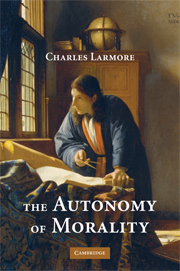10 - The Idea of a Life Plan
Published online by Cambridge University Press: 05 June 2012
Summary
“En échange de ce que l'imagination laisse attendre et que nous nous donnons inutilement tant de peine pour essayer de découvrir, la vie nous donne quelque chose que nous étions bien loin d'imaginer.”
– Marcel ProustA PHILOSOPHICAL PREJUDICE
When philosophers take up the topic of how we ought best to live our lives, they tend to rely upon a certain understanding of the human good that is far more problematic than they suspect. Among philosophers both ancient and modern, the reigning view has been, in essence, that the life lived well is the life we have shaped ourselves, in accord with a rational plan of our own design. Life is too serious a matter, it is held, for us to let ourselves be the plaything of the forces at work outside us. We ought instead to take control of our existence so far as possible, weighing carefully our circumstances, abilities, and interests, in order to determine the makeup of our good as well as the most efficient means to achieve it.
This way of thinking seems to me deeply mistaken. The idea that life should be the object of a plan is false to the reality of the human condition. It misses the important truth that Proust, by contrast, discerned so well and made into one of the recurrent themes of that great meditation on disappointment and illumination, A la recherche du temps perdu: the happiness that life affords is not just the good we are already in a position to prize and pursue, but also the good that befalls us unexpectedly.
- Type
- Chapter
- Information
- The Autonomy of Morality , pp. 246 - 272Publisher: Cambridge University PressPrint publication year: 2008
References
- 1
- Cited by

